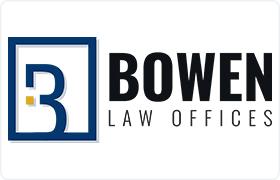Pioche Divorce & Family Law Lawyer, Nevada
Sponsored Law Firm
-
 x
x

Click For More Info:
-
Bowen Law Offices
9960 W. Cheyenne Ave. Suite 250 Las Vegas, NV 89129» view mapDivorce & Family Law Proudly Serving Clark County
Bowen Law Offices brings a wealth of litigation and courtroom trial experience to clients with various family law needs
800-357-1401
Not enough matches for Pioche Divorce & Family Law lawyer.
Below are all Pioche lawyers.
 Jerome Bowen Las Vegas, NV
Jerome Bowen Las Vegas, NV AboutBowen Law Offices
AboutBowen Law Offices Practice AreasExpertise
Practice AreasExpertise
